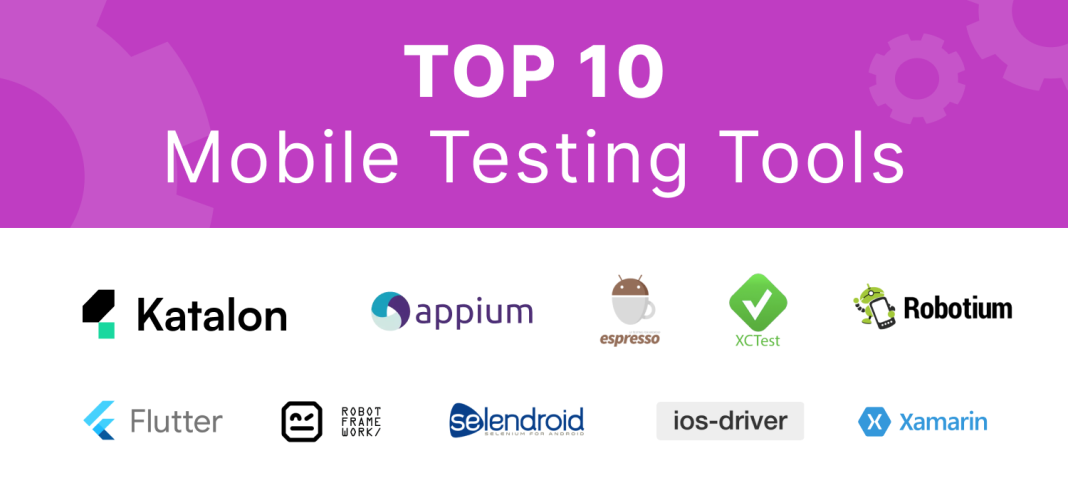Mobile testing is an indispensable part of software development that ensures your apps perform excellently on mobile devices. If this process is overlooked, the apps can malfunction or crash, causing users to uninstall them. Mobile testing ensures that glitches and bugs are unearthed at early development stages and are rectified before they teach the public. However, for your testing process to be accurate and effective, you should select only the best mobile testing tools that have an excellent track record and match your project requirements.
To help you select the best tool, we present here the top mobile testing tools that experts predict will be the most preferred tools in 2023.
7 Best Mobile Testing Tools to Watch Out for in 2023
We have prepared for you a detailed list of the best mobile testing tools
- TestGrid
Using this platform, you can test even the most complex features of any mobile app, whether for iOS, Android, Windows, or any other system, efficiently and accurately. TestGrid enables users to quickly and easily do automated and manual testing of their mobile applications on real devices.
The platform’s codeless automation testing capabilities ensure you don’t need any prior programming experience to perform the testing. Users can conduct numerous tests from anywhere and anytime by logging in to a cloud server. Start out with a no-cost plan and upgrade for as little as $29 per month.
TestGrid’s Benefits
- With TestGrid, you can conduct API testing, cross-browser testing, and other tests on mobile apps quickly and cost-effectively without having to install third-party apps
- It provides easy-to-understand documentation to users, along with complete video presentations of each feature
- The testing process can be sped up with the use of TestGrid’s parallel testing on numerous devices at once.
- TestGrid’s comprehensive reports and actionable insights are very useful to testers and developers
- TestGrid’s support team will answer any queries within 24 hours
- It allows you to reuse test cases, thereby saving the time taken to write the tests repeatedly
- It has an easy-to-use interface that lets even non-technical people conduct tests
- Appium
Appium is a free, open-source mobile testing tool that works with both iOS and Android devices starting with version 2.3. It supports automation testing on physical devices and simulators and emulators as well.
Pros and cons of Appium:
Pros:
- It enables you to perform cross-platform testing on mobile apps
- Appium provides in-depth reports that facilitate the rapid localization and resolution of faults.
- Appium is a flexible testing solution due to its support for many platforms like iOS, Android, & Windows.
- In addition to Java & JavaScript, Appium also supports Python & Ruby.
- Appium’s simple test-writing API makes it suitable for programmers of all experience levels.
Cons:
- It is difficult to test hybrid applications
- There is no support for testing mobiles with Android versions lesser than 4.2
- Appium isn’t always the swiftest testing framework available.
- Selendroid
This tool may be used to test native, hybrid, and mobile web applications. You can conduct testing on mobile applications without modifying them. You can easily find any UI element using Selendroid’s different types of locators.
Pros and cons of Selendroid:
Pros:
- Because of its compatibility with a wide range of Android releases, Selendroid is a very adaptable testing framework.
- It works well on both real devices as well as on emulators
- Selendroid is compatible with a wide range of languages, including Python & Java.
- It has an excellent object recognition feature
- It is compatible with Jason wire protocol
Cons:
- Expertise is required for Selendroid setup and configuration.
- When compared to other development frameworks, Selendroid’s speed may fall short.
- You cannot use it on systems having less than 4GB Ram
- Robotium
It is an open-source source testing framework that was created to make it simple to generate effective and reliable UI test cases for mobile Android applications. Test case writers can create scenarios for function, system, and acceptability tests that cover a variety of Android operations with the help of Robotium.
Robotium’s Benefits and Drawbacks:
Pros:
- Robotium’s simple API for creating tests makes it easy to use for programmers of all skill levels.
- It has a record & playback function that helps develop test scripts quickly.
- Robotium is a flexible testing solution because it works on iOS and Android devices.
- It has a feature to follow current activity automatically
- Test execution is faster with Robotium compared to other tools
Cons:
- It can handle one mobile application at a time
- It takes skill to properly install and set up Robotium.
- It doesn’t support handling o Flash or Web components
- Espresso
Espresso is one of the most popular test automation tools for testing Android applications. It provides a concise and efficient AP that enables you to automate an Android application’s UI components.
Espresso’s Benefits and Drawbacks:
Pros:
- Espresso’s simple API enables users to write easily understandable test cases
- Its superior performance when compared to other testing frameworks makes it a top choice for testing large applications
- It automatically synchronizes with the applications’ UI thread, thus doing away with the need for manual synchronization
- Espresso offers support for both Android and Katlin programming languages
Cons:
- Espresso’s is mainly designed for testing Android apps. Hence it cannot be used for iOS apps.
- Espresso demands skill to properly install and configure.
- Testing intricate apps with Espresso might be difficult.
- TestSigma
It is a testing tool that offers support for testing multiple Android and iOS versions. Testers can save a lot of precious time since it provides cross-platform testing capabilities. It provides details test reports that provide valuable insights to QA and developer teams.
TestSigma’s Advantages and Disadvantages
Pros:
- You can track test cases easily with this framework
- It supports API testing of applications
- It has a visual testing feature that ensures the applications have a perfect UI across different platforms and devices
- It offers excellent, round-the-clock support for users, answering all queries promptly
- It provides support for data-driven testing
Cons:
- Its reporting features are not too flexible
- It does not allow you to compare two screenshots
- Perfecto
It is a highly popular mobile application testing tool. It offers features to address challenging problems that arise when testing mobile applications. It allows for the parallel execution of tests on both virtual and physical devices. Perfecto offers different types of testing, like regression testing and performance testing.
Perfecto’s benefits and drawbacks:
Pros:
- It offers support for PHP, Python, Javascript, and other programming languages
- Perfecto lets you seamlessly integrate with tools like Appium, Espresso, TestNG, and JUnit
- It’s record and replay feature makes testing easier
- It provides smart analytics that helps developers get quicker feedback and fix bugs efficiently
- It provides users with excellent customer support
Cons:
- It has no support for on-premise cloud services
- When compared with other testing frameworks, Perfecto’s speed may fall short.
Conclusion
All the mobile testing tools listed above have unique features and advantages, but the final selection should be based on your specific project requirements and your budget. For most companies, TestGrid is always the preferred automation testing platform for testing mobile applications as it provides all the features and capabilities you need without requiring the installation of any other third-party tool. It is a simple plug-and-play solution that lets you start testing your application with just a single sign-up.
TestGrid allows you to efficiently perform various types of tests for even highly complicated applications and deliver perfect software products consistently.







